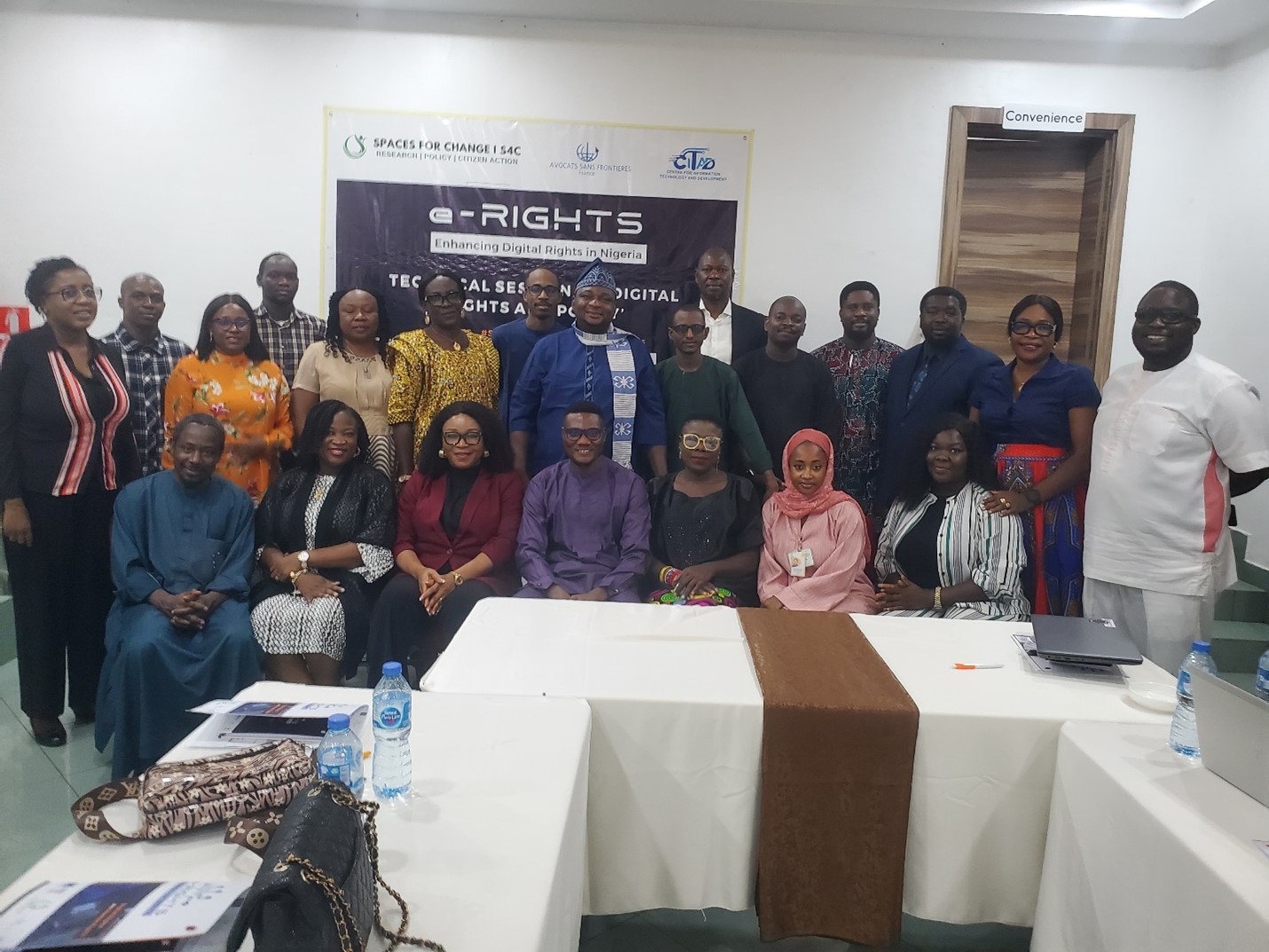
What are the gaps that exist within Nigeria’s legal frameworks and jurisprudence limiting the effective legal protection of digital rights? How can stakeholders across sectors jointly identify gaps and the impacts of extant laws and regulations governing digital technologies on civil society and propose reforms that enhance safeguards for democratic citizenship, civil liberties and the civic space? These concerns were the main thrust of the Experts’ Technical Session on Digital Reform Guide organized by Spaces for Change (S4C), in collaboration with Avocats Sans Frontières France (ASF) and the Center for Information Technology and Development (CITAD), with support from the European Union Commission. Twenty-five (25) digital rights experts from the civil society, private and public sectors— regulators, journalists, government officials, lawyers, telecommunications companies, activists from local and international civil society organizations—participated in the Technical Session held on May 30.
The deregulation of telecommunications laid the foundation for the transformation of the country’s digital economy, resulting in the technological boom witnessed in Nigeria since the late 90s. Concurrently, the digital space is witnessing huge exploitations and threats from both human and technological vulnerabilities, necessitating the enactment of a maze of legal frameworks by both governmental and non-governmental bodies. The design and implementation of these regulations and controls have had implications on the ability of citizens and organizations to speak up, associate and assembly freely. For instance, the implementation of tighter controls on digital currency flows holds enormous potential to restrict the financial access of activists, human rights defenders, journalists, medics, humanitarians, and other civil society actors.
Since the ENDSARS protests of 2020, the Nigerian government has made series of attempts to churn out laws that regulate social media as well as limit the financing, planning, and preparation of protest activities and online campaigns. These constraints limit civil liberties and constitutional human rights guarantees enshrined in Nigeria’s 1999 Constitution. The need to address these constraints on human rights prompted urgent calls for reform. It was against this backdrop that the digital rights experts adopted a multi-stakeholder approach toward proposing policy reforms where technological developments and user rights protections can coexist.
Guided by an independent consultant, the Technical Session offered a balanced and constructive space for discussing the array of laws, policies and regulations governing digital rights, including draft statutes under legislative consideration. The discussions that followed examined the scope of powers of certain regulatory bodies regulating the telecommunications space and how regulatory measures are contributing to the shrinking of the digital space. Beyond existing statutes, the discussion also shed light on repealed laws, either jettisoned or revised for various reasons such as their incompatibility with the human rights framework, public outcry, duplicity, and failure to address emerging technological trends. The interactive discussions revealed gaps in numerous regulations, as well as poor coverage of some emerging technological trends—such as artificial intelligence—in existing regulations.
The conversational nature of the session enabled open and robust dialogue among experts. This Technical Session was convened under the auspices of the e-Rights Project funded by the European Union Commission. Through these sessions, experts will work toward developing a policy guide on digital rights aimed at closing policy gaps and addressing provisions that limit constitutional protections, data privacy, and other critical elements of digital rights policymaking.



